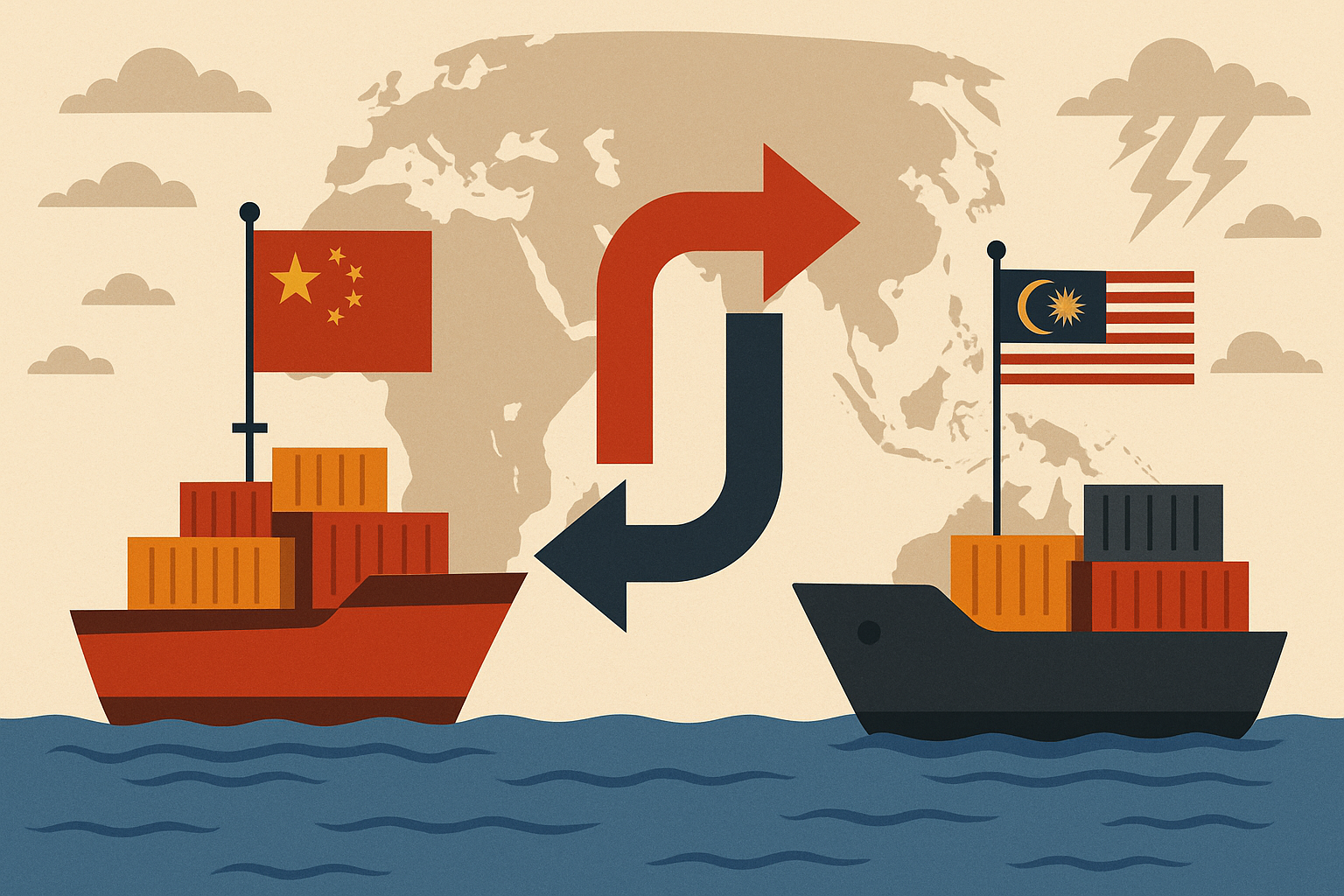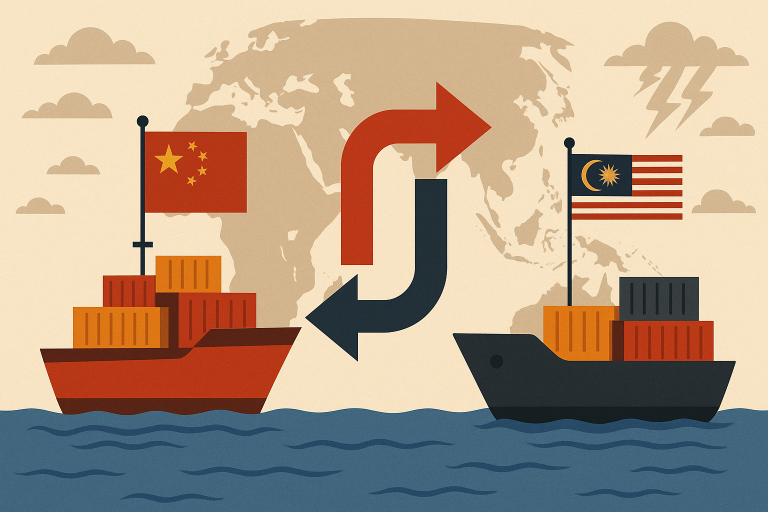
China intensified its push for regional trade cooperation at a Malaysia summit overshadowed by steep US tariffs, seeking to position itself as the stabilising force for Asian economies navigating protectionist headwinds.
While Washington reaffirmed its tariff stance during President Donald Trump’s five-day Asia tour, Beijing worked to expand its influence through multilateral diplomacy and strategic trade partnerships.
The meetings marked a pivotal moment in China’s efforts to strengthen ties with the Association of Southeast Asian Nations (ASEAN) and allied economies, underlining its ambition to shape a more integrated and less US-dependent regional trade order.
China’s regional strategy gains momentum
At the Malaysia summit, attended by leaders from ASEAN, Brazil, Canada, Japan, and the European Council, Reuters reports that China called on member states to maintain free trade and reject protectionism.
Premier Li Qiang urged countries to safeguard stability in East Asia through multilateral engagement and adherence to World Trade Organization principles, aligning with China’s long-term objective of leading supply-chain resilience across the region.
Meanwhile, President Trump oversaw four regional trade framework agreements and an expanded ceasefire pact between Cambodia and Thailand during his visit.
However, none of these deals eased tariffs on goods from Cambodia, Malaysia, Thailand, or Vietnam. Reuters states that the White House confirmed that the tariffs would remain in place despite renewed cooperation efforts.
Beijing capitalised on the gap left by Washington’s protectionist policy, advancing discussions on tariff-free trade corridors and regional production links.
With US negotiators departing early for Japan, Chinese officials used the opportunity to consolidate diplomatic ground and strengthen their economic leverage within ASEAN.
RCEP drives China’s influence in Asia
The Regional Comprehensive Economic Partnership (RCEP) — a China-backed trade pact comprising 10 ASEAN nations along with Australia, Japan, New Zealand, and South Korea — emerged as a focal point of the summit.
Representing about 30% of global GDP, RCEP remains the world’s largest trading bloc and a central pillar of China’s regional strategy.
Participants highlighted plans to accelerate the inclusion of new members and enhance cooperation in supply chains, digital trade, and logistics.
Experts noted that RCEP could serve as a counterweight to Washington’s tariff-driven trade agenda, offering Asia-Pacific economies a platform for market integration and collective bargaining.
As per the Reuters report, Brazilian President Luiz Inacio Lula da Silva also engaged in trade talks with Trump, later revealing that discussions had opened the door to a more favourable deal on Brazilian exports currently facing tariffs of up to 50%.
His comments underscored the summit’s broader context — developing economies seeking flexibility from both major powers amid intensifying trade realignments.
Western partners raise export control concerns
The summit also exposed growing tensions between China and Western allies over critical mineral supply chains.
European Council President Antonio Costa met with Premier Li Qiang to express concern over Beijing’s expanding export controls on key raw materials used in electric vehicles and renewable technologies.
Costa urged the restoration of predictable trade flows to safeguard Europe’s industrial stability and energy transition.
Japan echoed these concerns, pointing to China’s control over 90% of global rare earth production. Tokyo criticised Beijing’s export curbs, warning that such measures threaten global supply chains and contradict China’s calls for open trade.
These discussions reflected a widening disconnect between China’s free-trade rhetoric and its strategic management of essential resources.
South China Sea tensions overshadow trade efforts
Despite progress on trade diplomacy, territorial tensions persisted. Philippine President Ferdinand Marcos Jr condemned China’s activities in the South China Sea, citing repeated incidents that endangered Philippine vessels and personnel.
Beijing’s foreign office responded that the Philippines had violated maritime rights and provoked confrontation.
The dispute highlighted the delicate balance Beijing faces between projecting economic leadership and addressing regional security concerns.
While initiatives like RCEP promote cooperation, ongoing maritime disputes continue to undermine trust and complicate China’s bid for uncontested regional influence.
As the summit concluded, the contrast between China’s collaborative tone and its assertive regional posture became clear.
With US tariffs still straining Asian exporters and Western allies wary of Beijing’s resource policies, China’s approach now hinges on maintaining trade credibility while navigating deep geopolitical mistrust.
The post China seeks stronger ASEAN ties at Malaysia summit amid US tariff tensions appeared first on Invezz

